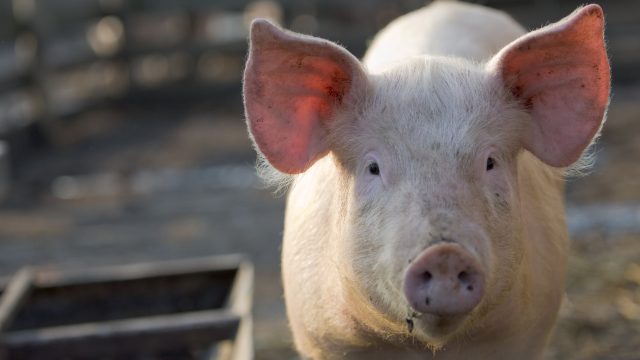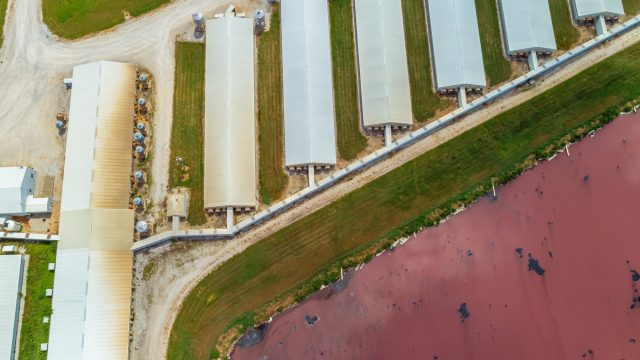
Legal Petition Urges USDA to Track All Animal Deaths at Zoos
Petition urges recordkeeping of all deaths and reporting to the agency every three years from Animal Welfare Act licensees
Contact: media@aldf.org
WASHINGTON — Today, the Animal Legal Defense Fund and CompassionWorks International submitted a petition for rulemaking to the U.S. Department of Agriculture’s (USDA) Animal and Plant Health Inspection Service (APHIS) urging the agency to issue a rule under the Animal Welfare Act (AWA) that would require licensees to record all instances of animal mortality occurring to animals in their possession — and file the mortality reports with the agency every three years. The petition asserts that the recordkeeping requirement already exists in the statute, and simply requires clarification of the terms in the law.
AWA-licensed dealers and exhibitors are required to maintain records regarding all animals in their possession who are “disposed” of, including the date of disposal. The regulation also requires these licensees to record instances of euthanasia, which creates ambiguity as to whether the categories are mutually exclusive or inclusive. The petition requests a clarification to the regulations to indicate that all animal deaths do fall under the term “disposal,” as licensees may be interpreting the terms to their advantage. This could result in unreported animal deaths as a result of potential AWA violations, which in turn will go unnoticed and uninvestigated by the USDA.
“The list of animals on the premises of a roadside zoo from one USDA inspection to the next can be vastly different — with no explanation for where grizzly bears or wolves have disappeared to,” says Animal Legal Defense Fund Executive Director Stephen Wells. “It is the USDA’s responsibility to monitor and protect animals in the possession of AWA licensees — but it can’t do that if it doesn’t know if the animals are alive or dead.”
The Animal Legal Defense Fund only learned of the deaths of multiple animals — some of them missing — through the litigation process. Some examples include:
- Cricket Hollow Zoo: As part of ongoing litigation, the Animal Legal Defense Fund hired a private investigator in 2013 to monitor conditions inside Cricket Hollow Zoo in Manchester, Iowa. The investigator noted that three Meishan piglets had died of exposure overnight in their cage — a fact that went unnoticed by the zoo owner upon opening the facility, though their bodies were visible to zoo visitors. The deaths went unreported to the USDA. In 2018, the Animal Legal Defense Fund filed an Iowa state court lawsuit against the facility, which resulted in the court finding Cricket Hollow Zoo to be a public nuisance that violated state cruelty laws and ordering the removal of all of the animals. While the facility had its license revoked and animals removed following the lawsuit, mortality records could have helped ensure that APHIS was aware of the dire conditions at the zoo and pushed the agency to rescue the remaining animals, eliminating the need for the Animal Legal Defense Fund to take further legal action.
- Olympic Game Farm: This AWA-licensed Washington state roadside zoo has possessed at least 12 ESA-protected gray wolves since 2011. One wolf named Elbey was transferred for “breeding purposes” to animal dealer Bob Sawmiller — who so egregiously violated the AWA that the USDA ultimately terminated his license. As part of discovery in Animal Legal Defense Fund v. Olympic Game Farm, the Animal Legal Defense Fund discovered that Elbey had died at Sawmiller’s facility more than a year after her death, which went unreported.
- Tiger Creek: The Animal Legal Defense Fund’s lawsuit against the roadside zoo known as Tiger Creek has revealed allegations of numerous animal deaths at the East Texas facility, including a puma named Coco who was euthanized days after he began dragging his leg and became immobile and a tiger named Tibor who died after spending hours in the rain, laying in his own urine.
Animal deaths can be emblematic of a lack of proper veterinary care and oversight at a facility. For example, deaths can indicate contagious disease, ongoing abuse, or improper diet. Mandatory mortality recordkeeping and reporting would provide the USDA with opportunities for early detection and intervention to protect the welfare of animals at facilities it regulates, furthering the purpose of the AWA.
Sign Up!
Join the Animal Legal Defense Fund's email list to stay up to date on lawsuits, legislation, and regulations affecting animals.
Related
-
Court Rules Texas Food Label Censorship Law is Unconstitutional
The law imposed unclear and vague standards on plant-based meat producers that violate the First AmendmentJanuary 29, 2026 Press Release -
State Animal Protection Laws Ranked: Oregon is #1, North Dakota #50
20th edition of ALDF state and territory ranking report highlights major advancements & trends in animal protection across the U.S.January 27, 2026 News -
Over 30 Organizations Urge USDA to Limit Federal Support for Manure Digesters
Hundreds of millions of dollars intended to cut energy costs have been funneled to costly manure digesters, benefitting the largest factory farmsJanuary 15, 2026 News




